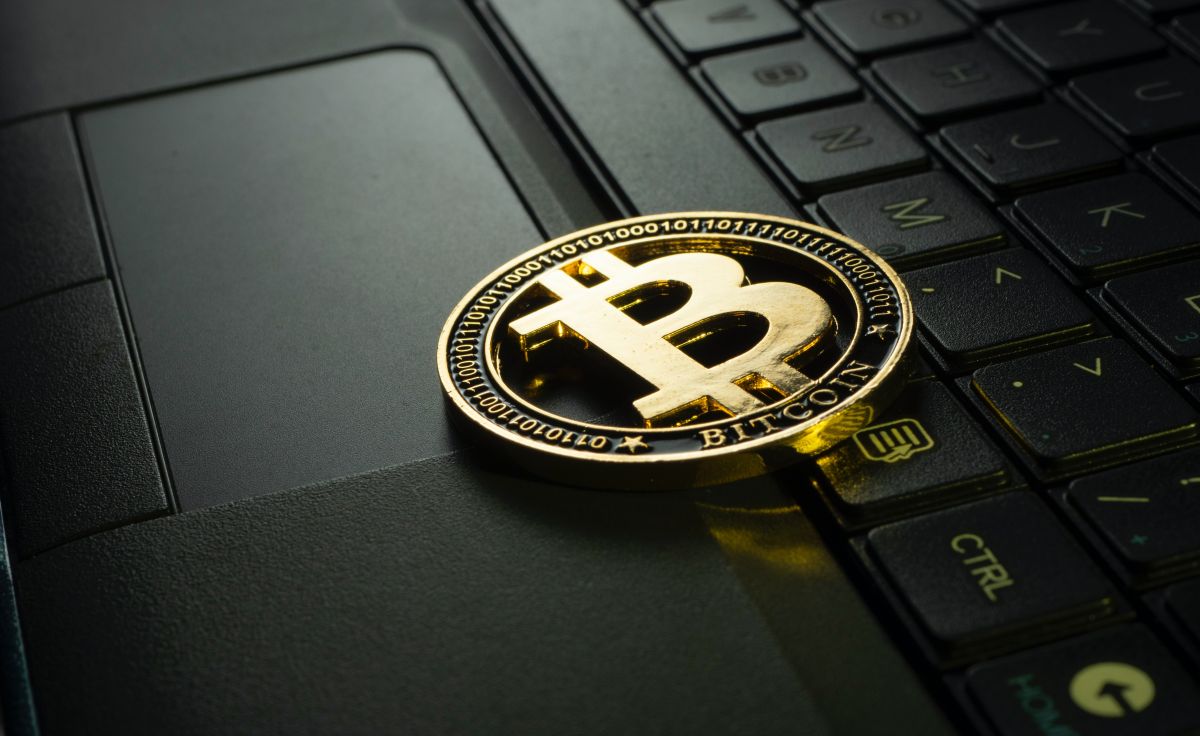What is the purpose of Bitcoin? What do you need to know about it in 2023?

In Brief
There are two leading schools of thought regarding the purpose of Bitcoin.
Bitcoin has often been labeled a speculative investment, and with good reason.
When it comes to Bitcoin, there are two camps: those who believe that its sole purpose is to be used as a speculative investment and those who believe that it can become a viable currency alternative to the dollar. The truth, as always, likely lies somewhere in the middle. In this guide post, we will explore the pros and cons of each argument and try to come to a conclusion about the true purpose of Bitcoin.

In 2009, Bitcoin was developed in reaction to the world financial crisis. The creators of Bitcoin wanted to create a new form of money that was not subject to the same rules and regulations as traditional fiat currencies. Bitcoin has since become a popular investment for those looking to cash in on the potential for high returns. Many people are still unsure about the purpose of Bitcoin.
There are two leading schools of thought regarding the purpose of Bitcoin. The first is that it is primarily a speculative asset, and its price will fluctuate wildly as more investors enter the market. The second is that Bitcoin could eventually replace the US dollar as a global reserve currency due to its decentralized nature and limited supply.
It is still too early to say definitively which of these two views is correct. However, Bitcoin has the potential to disrupt the existing financial system. If it becomes a global reserve currency, it could significantly impact how the world economy functions.
The Original Purpose of Bitcoin
When Satoshi Nakamoto launched Bitcoin in 2009, he (she or they—the creator remains anonymous to this day) did so intending to create a new digital currency that could serve as a decentralized alternative to existing fiat currencies. In the Bitcoin whitepaper, Nakamoto wrote that “The Times 03/Jan/2009 Chancellor on the brink of second bailout for banks” was the headline that inspired him to develop a peer-to-peer electronic cash system.

This suggests that Nakamoto saw Bitcoin as a way to provide an alternative to the existing financial system, which he believed required reform. Since Bitcoin’s launch, this original vision has largely been forgotten and replaced by a narrative that casts Bitcoin as nothing more than a tool for speculation and greed.
While many still believe in Bitcoin’s potential as a currency, it’s hard to deny that many Bitcoin holders use it for speculative purposes. Indeed, those who see Bitcoin as a potential currency tend to view it more as a store of value than a means of exchange.
This is perhaps best illustrated by the fact that, despite its 12-year history, Bitcoin remains largely unusable as a means of payment. This is large because Bitcoin’s price is so volatile that it’s impractical to use as a currency. For example, if you buy a cup of coffee with Bitcoin today, the price of Bitcoin might rise or fall so much by the time you receive your coffee that you either end up making a profit or a loss on the transaction.
This volatility has led many to view Bitcoin more as an investment than a currency. This is evident in the way that people refer to buying Bitcoin as “investing” in Bitcoin, and it’s also reflected in the way that most people use Bitcoin wallets. Rather than using Bitcoin wallets to store small amounts of Bitcoin that are spent easily, most people use them to store large amounts of Bitcoin that they hope will appreciate over time.
This is not to say that there are no practical uses for Bitcoin as a currency. There are certainly some niche businesses and markets where Bitcoin is used as a means of payment, but these are far outnumbered by those who view Bitcoin primarily as an investment.
3 Reasons 2023 Could Be a Big Year for Bitcoin
Bitcoin has been around for a number of years now, and it’s not showing any signs of slowing down. In fact, many experts believe 2023 could be a big year for this exciting cryptocurrency. Here are three reasons why that might just be the case.
1. Increased mainstream adoption. Over the past few years, there has been a steady increase in the number of businesses and individuals around the world who are using Bitcoin for transactions. As this trend continues, it is likely that we will see even greater mainstream adoption of Bitcoin in 2023, which could drive up its value significantly.
2. Improved security. One of the key challenges facing Bitcoin in recent years has been securing its network and preventing cyberattacks. However, over time, developers have implemented a range of new security measures that are helping to make Bitcoin more secure than ever before. In 2023, we can expect even stronger protections to become available, further enhancing the appeal of this cryptocurrency.
3. Growing popularity in emerging markets. Due to the low transaction fees and fast processing times associated with Bitcoin, it has become quite popular in many emerging markets around the world, where traditional financial systems are less developed. As access to Bitcoin continues to expand in these regions, its popularity is likely to grow even further – helping drive up its value in the process.
Whether you are an experienced Bitcoin user or just starting out, 2023 could be a big year for this cryptocurrency. With increased mainstream adoption, improved security, and growing popularity in emerging markets, it is likely that we will see significant gains for Bitcoin over the next few years.
What useful purpose can Bitcoin serve in the long term?
Can it become a store of value like gold? Can it be used as a medium of exchange like fiat currencies? Or is its primary purpose acting as a speculative asset like stocks or commodities?

Some believe that Bitcoin will eventually replace fiat currencies, becoming the actual global currency. In this scenario, Bitcoin would be used for everyday transactions and become a more stable store of value than fiat currencies.
Others, on the other hand, believe that Bitcoin will complement fiat currencies, serving as a digital gold that can be used to hedge against inflation or economic instability. In this scenario, Bitcoin would be bought and held as a long-term investment, similar to how people invest in gold.
JPMorgan Chase and Blackrock, the world’s largest financial groups, believe Bitcoin is eating into gold’s market share. This suggests that some institutions see Bitcoin as a potential store of value in the long term.
Several hurdles need to be cleared before that can happen. For one, Bitcoin is still relatively volatile compared to more established currencies, making it less suitable as a day-to-day means of exchange. There’s also the issue of scalability. The Bitcoin network can currently only handle a limited number of transactions per second, and this issue would need to be addressed before it could be used as a viable global currency.
So far, it seems that Bitcoin’s primary use case is as a speculative asset rather than a replacement for fiat currencies. Most Bitcoin transactions are still related to buying and selling the currency rather than using it to purchase goods or services. And while some businesses do accept Bitcoin as payment, they are still in the minority.
One potential use case for Bitcoin that is often mentioned is its potential to act as a hedge against inflation. If traditional fiat currencies start to lose their value, then Bitcoin could become more appealing as a store of value. However, it’s worth noting that Bitcoin has also been incredibly volatile, so it’s far from being a reliable hedge against inflation.
In the end, it’s still unclear what the long-term purpose of Bitcoin will be. It has shown some potential as both a speculative asset and a potential replacement for fiat currencies, but it remains to be seen if it can fulfill either role in the long term.
The case for Bitcoin as a currency
Bitcoin has often been labeled a speculative investment, and with good reason. The price of Bitcoin has fluctuated wildly over the years, and it remains to be seen whether it will ever become a truly mainstream currency. However, some believe that Bitcoin could have a more critical role in the global economy than simply as an investment. These people believe that Bitcoin could become a global currency, one that is used by people all over the world for everyday transactions.
There are several reasons why Bitcoin could potentially succeed as a global currency.
- Bitcoin is decentralized, meaning it is not subject to the control of any single government or financial institution. This makes it much less likely to be subject to manipulation and interference that can sometimes plague other currencies.
- Bitcoin is global, meaning that anyone in any country can use it. This could make it particularly appealing to people in countries with unstable or inflationary fiat currencies.
- Bitcoin is relatively secure and easy to use. While there have been some high-profile hacks of Bitcoin exchanges, the overall security of the Bitcoin network is quite strong. And, thanks to its decentralized nature, there is no need to worry about banks or other financial institutions freezing or confiscating Bitcoin accounts.
- Bitcoin has a limited supply. There will only ever be 21 million bitcoins, meaning the currency is not devalued through inflation. This could make Bitcoin a much more stable store of value than fiat currencies, which can sometimes lose their value due to inflation.
Whether Bitcoin will succeed as a global currency remains to be seen. The currency is still in its early stages, and it will likely take many years to reach its full potential. However, the possibility that Bitcoin could one day become a significant player in the global economy is undoubtedly an intriguing one. If nothing else, it shows that the concept of a decentralized, global currency is not as far-fetched as some might think. Who knows, maybe one day, we will all be using Bitcoin to buy everyday items like coffee or bread. Only time will tell.
Bitcoin as a Medium of Exchange
The most popular way to use Bitcoin is as a medium of exchange. In this model, users transact with each other directly, using the cryptocurrency as a unit of account for their transactions. This usage has been growing steadily over the years as more and more people begin to see Bitcoin as a viable alternative to traditional fiat currencies.
There are several reasons why Bitcoin is an attractive medium of exchange.
- It is decentralized, meaning there is no central authority controlling the supply or issuance of the currency. This makes it resistant to government manipulation, interference, and inflationary pressures.
- Bitcoin transactions are fast and cheap. They are typically completed within minutes, and there are no meager fees. This makes Bitcoin an ideal payment method for online purchases, as well as for person-to-person transactions.
- Bitcoin is a global currency. It can be used by anyone in the world, regardless of location. This makes it an ideal tool for international trade and commerce.
- Bitcoin is pseudonymous. This means that users can transact without revealing their identity, making it perfect for those who value privacy and security.
- Bitcoin is programmable. This means it is used to create new applications and services that would not be possible with traditional fiat currencies.
- Bitcoin is scarce. There will only ever be 21 million bitcoins in existence. This makes it a valuable asset and is likely to increase over time.
- Bitcoin is open source. This means that anyone can view the code and make changes to it. This makes it transparent and decentralized, as well as secure and reliable.
- Bitcoin is censorship-resistant. It cannot be censored or blocked by any government or institution. This makes it an ideal currency for those who value freedom and liberty.
- Bitcoin is portable. It is stored on a computer, phone, or paper wallet. This makes it convenient and easy to use.
- Bitcoin is divisible. This means that it can be divided into small units, making it easy to transact.
All of these factors make Bitcoin an attractive option for those looking for a new medium of exchange.
Bitcoin as a Store of Value
For a good reason, Bitcoin has often been touted as digital gold. Like gold, Bitcoin is scarce, durable, and portable. It is also divisible, making it easy to use in transactions of all sizes. While gold remains the king of store-of-value assets, Bitcoin is quickly closing the gap.

Bitcoin is often compared to gold because they both have similar properties. They are both scarce, durable, and portable. They are also divisible, making them easy to use in transactions of all sizes. However, there are some key differences between the two assets.
- Bitcoin is more scarce than gold. There will only ever be a set amount of bitcoins, while there is estimated 5 billion ounces of gold that are yet to be mined. This makes Bitcoin a more attractive store of value for those looking for scarcity.
- Bitcoin is also more durable than gold. Gold can be damaged or destroyed, but Bitcoin cannot. Bitcoin is stored on the blockchain, a decentralized ledger. Once a Bitcoin is mined, it can never be destroyed or lost.
- Bitcoin is more portable than gold. Gold is heavy and difficult to transport, whereas Bitcoin can be easily transported on a USB drive or even a piece of paper. This makes Bitcoin much more convenient to use as a store of value.
- Bitcoin is a more attractive store of value than gold. It is more scarce, more durable, and more portable. This makes it a great asset to invest in for those looking to protect their wealth from inflation or financial instability.
Bitcoin vs. the dollar
The purpose of Bitcoin has been a hot topic of debate since its inception. Is it a good idea to invest in Bitcoin, or is it better to stick with the dollar? Let’s take a look at the pros and cons of each option.
Bitcoin Pros
- Bitcoin is not subject to inflation like the dollar.
- Bitcoin is decentralized and not controlled by any government or financial institution.
- Bitcoin is used to buy items anonymously.
- Transactions with Bitcoin are fast and cheap.
- There is a limited supply of Bitcoin, making it more valuable over time.
Bitcoin Cons
- Bitcoin is a volatile investment, and its value can drop suddenly.
- Bitcoin is not yet widely accepted as a form of payment.
- Any government or financial institution does not regulate bitcoin.
- Bitcoins are stored in digital wallets and can be lost if the wallet is hacked or the computer crashes.
Dollar Pros
- The dollar is a stable investment, and its value does not fluctuate as much as Bitcoin’s.
- The dollar is widely accepted as a form of payment.
- The government and financial institutions regulate the dollar.
- Dollars are stored in banks and can be replaced if lost or stolen.
Dollar Cons
- The dollar is subject to inflation.
- The government and financial institutions control the dollar.
- Transactions with the dollar can be slow and expensive.
- The supply of dollars is unlimited, making it less valuable over time.
There is no easy answer, as both options have pros and cons. Ultimately, it comes down to personal preference and risk tolerance.
Future of Bitcoin 2023 and Beyond
Bitcoin was first introduced in 2009 as a new form of digital currency that eliminated the need for centralized banks and financial institutions. It is a decentralized, peer-to-peer payment system that allows users to transfer funds quickly and cheaply without any intermediaries. This has made Bitcoin incredibly popular among those who want to spend or invest their money without having to deal with high transaction fees or slow processing times.
But what does the future hold for Bitcoin? In 2023, we will likely see even more widespread adoption of this revolutionary digital currency. Despite some recent setbacks and concerns about security, many experts believe that Bitcoin has a lot of potential and could become a mainstream form of payment shortly.
Several factors will influence the growth of Bitcoin in 2023 and beyond, including increased regulation and security measures, as well as wider accessibility for users around the world. In addition, there is a growing interest among companies to use blockchain technology for various applications, which could lead to more widespread use of Bitcoin over time.
Whether you are a Bitcoin investor, user, or developer, it is important to stay up-to-date with the latest news and trends in this fast-changing industry. By paying attention to emerging trends and developments, you can position yourself for success as Bitcoin continues to evolve and grow.
FAQS
Bitcoin investment is not exactly something that can always be considered an investment. This is because it is speculative to a large extent. It cannot be said with certainty whether any digital currency will perform well or not in the future.
Speculation is a major driving force behind the recent price increases in Bitcoin. Many people are interested in investing in this digital currency and are willing to pay higher prices to acquire it. While some of this speculation is based on a rational analysis of Bitcoin’s technology and potential uses, a strong emotional aspect is also involved.
Bitcoin is a digital currency that uses cryptography to control its creation and transactions. It was created in 2009 by an unknown person or group named Satoshi Nakamoto. Since then, it has gained popularity for its decentralized nature, transparency, and security features.
Bitcoin is a digital currency that can be used for transactions online. It has many uses and benefits, making it an ideal investment option for people who want to make money from their assets. You can do several things with Bitcoin, such as buying goods or services, trading them on exchanges, investing in various products, and much more.
Bitcoin is a digital currency that allows people to make online secure, anonymous transactions. Unlike traditional currencies like the dollar or the euro, bitcoin is not controlled by any central authority or government.
Conclusion
There is no easy answer when it comes to the future of Bitcoin. While it has shown great potential as an investment, its true utility lies in its ability to function as a currency and facilitate secure transactions online. Whether this will ever become a reality remains to be seen, but many experts believe that with continued development and adoption, Bitcoin has the potential to become a major force in the financial landscape.
Read related articles:
- What Is Bitcoin? How Does It Work?
- The Bitcoin Blockchain: A Beginner’s Guide
- 5 Best Crypto Lending Platforms in 2022: Rates, Types, Risks
Disclaimer
In line with the Trust Project guidelines, please note that the information provided on this page is not intended to be and should not be interpreted as legal, tax, investment, financial, or any other form of advice. It is important to only invest what you can afford to lose and to seek independent financial advice if you have any doubts. For further information, we suggest referring to the terms and conditions as well as the help and support pages provided by the issuer or advertiser. MetaversePost is committed to accurate, unbiased reporting, but market conditions are subject to change without notice.
About The Author
Moses is an experienced freelance writer and analyst with a keen interest in how technology is disrupting the financial sector. He has written extensively on the subject of cryptocurrencies from an investment perspective, as well as from a technical standpoint. He has also been involved in trading cryptocurrencies for over two years.
More articlesMoses is an experienced freelance writer and analyst with a keen interest in how technology is disrupting the financial sector. He has written extensively on the subject of cryptocurrencies from an investment perspective, as well as from a technical standpoint. He has also been involved in trading cryptocurrencies for over two years.



















































